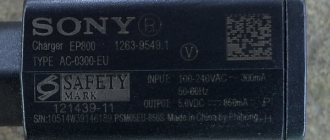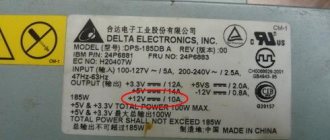Basic information about electrical safety approval
An electrical safety permit is a document that allows a specialist to carry out various work on electrical installations and confirms the appropriate level of his skills and knowledge, as well as experience. Workers who have received level 2-5 clearance have the necessary qualifications. After additional preparation and registration of this type of permit, the risk of emergencies and incidents at your facility will be significantly reduced.
Before obtaining admission, you must undergo specialized training at the organization’s training center or a third-party educational institution and pass exams. Based on their results, the specialist will be assigned a group corresponding to his position, work responsibilities, as well as experience and knowledge. With such a document, he will be able to carry out work with installations of a certain capacity and purpose.
| Stage | Peculiarities |
| Primary training | Necessary for employees who have just been hired, do not have confirmed status, and specialists with less than three years of experience. |
| Repeated planned training | Required for all specialists on a regular basis. The main employees of enterprises must attend lectures once a year, managers, foremen, foremen of various levels - once every three years. |
| Unscheduled training | It is necessary for specialists who want to move to another position, gain access to more powerful installations or complex activities, but do not have sufficient knowledge and skills for this. |
| Certification | Carried out after each training cycle. Allows you to get a new group. |
Note! The employer must organize training and certification of specialists. He is obliged to pay for educational services, all kinds of fees and commissions, as well as cover additional expenses, if any.
The level (group) of admission depends on education, job responsibilities, category of the employee, as well as the maximum installation voltage allowed at the facility.
The following organizations can issue permits:
- Certification Commission of Rostechnadzor (territorial body).
- Specialized training centers that have accreditation (the issuing commission must be headed by a Rostechnadzor inspector).
- Internal commission of the company for which employees are trained. Such a commission must include at least five specialists, three of whom are required to obtain accreditation in advance from an educational organization (training center).
The choice in favor of one option or another depends on the size of the enterprise, the number of specialists, and location. Most often, it is convenient for companies to contact training centers.
Commission for testing knowledge on labor protection
To test knowledge of labor protection requirements, the employer is obliged by order to create a commission to test knowledge of labor protection requirements, consisting of at least three people who have completed training in labor protection and testing of knowledge of labor protection requirements in the prescribed manner2.
Reason: Resolution of the Ministry of Labor of Russia, Ministry of Education of Russia dated January 13, 2003 N 1/29 (as amended on November 30, 2016)
You can read how to properly organize the work of the commission in our article Labor safety training: Questions and answers.
What documents are required for the commission to operate?
Who should get an electrical safety permit?
A permit of this type is required to be issued by all employees of the enterprise who are directly involved in the operation and maintenance of installations, organize the production process, are responsible for safety and carry out other duties related to the equipment in one way or another. These include:
- representatives of blue-collar professions involved in installation, repair and maintenance of equipment;
- employees who use electrical installations (for example, elevator operators or welders);
- bosses at various levels, foremen and foremen, as well as other employees who are involved in management, belong to technical personnel and in one way or another use electrical equipment;
- senior managers in companies that service electrical installations.
Note! If an enterprise wants to become a member of a self-regulatory organization and obtain access to certain work or renew this membership, its employees are required to obtain the appropriate permits.
How to register for training
To confirm the fact that the training took place and the employees successfully mastered the given material, confirmation is required, namely:
- For this purpose, a special Journal is opened, the columns of which indicate: serial number; full surname and initials; date of study; signature of the instructor; signature of the person being instructed.
- The log is initially filled out by the person who conducted the training, and then submitted for signature to the employees who received the knowledge.
The requirements for the Journal itself are standard, namely: the document must be laced, numbered and registered in the facility’s records management. After employees have signed, the Journal must be saved until the next certification.
Access groups
There are five groups. The first one stands apart and is assigned to employees who are classified as additional maintenance personnel and do not use electrical installations in any way. In particular, secretaries, accountants, and personnel officers who work with equipment must obtain such permission. Such a group cannot be changed simply by increasing seniority and work experience.
| Group | Experience | The level of education | Speciality |
| II | not needed | not required | welders; specialists performing maintenance of HDTV thermists; machinists and operators who directly use devices and mechanisms with an electric motor. |
| III | from one to three months | not required | maintenance specialists; electricians working with lighting devices; engineers managing specialists from the previous group; foremen; testers working on live installations; specialists servicing underground cables; installers of communication posts, antenna-feeder installations; insulation assessors; specialists in the field of maintenance and installation of TAI devices and transformers; testers of hand-held machines and other devices. |
| IV | from 3 months to 2 years | higher or secondary technical education | managers of areas where electrical equipment is operated; those responsible for electrical equipment (and their deputies); managers issuing work orders for installations up to 1000V; employees responsible for safety precautions. |
| V | from 3 months to 2 years | Higher or secondary technical education | specialists working with complex electrical installations, including those with voltages over 1000V; wide range of specialists and managers. |
What do certified specialists get?
Based on the results of the training, specialists receive admission to a certain group. Information about it is registered in the list of Rostekhnadzor. It is also recorded in the specialist’s personal file. Based on these marks, the employee gains access to professional activities.
A company that employs the following specialists also has its own privileges:
- such an enterprise has a higher chance of receiving a municipal or state tender and taking on a large project;
- the partners with whom the company cooperates gain more confidence in the professionalism of its employees and the reliability of the organization;
- the company can obtain SRO approval faster.
Note! When obtaining permission, the employee must go through all groups, starting from the second (with the exception of service personnel). First you need to register the second group, then the third, and only then the fourth and fifth. You cannot “jump” through one or two groups, even if the specialist has experience, higher education and skills. A new employee with no experience has the right to count only on the second group of admission (the first group is not taken into account and is required only for non-core employees).
Instruction program
There are no standard electrical safety programs. However, there are informational requirements. The program must contain the following sections:
- General requirements for electrical safety. In this case, issues related to the consequences and causes of a short circuit, faulty or lack of grounding, or touching live wires are considered.
- Safety of operations with electrical appliances. For people studying under the program for group 1, it is enough to master simple algorithms. Every day a person should check the condition of the plug and socket. The position of the cables must be checked regularly. They should not come into contact with a damp environment or be near objects with elevated temperatures. All employees must know where to go if a malfunction is detected and be able to use fire extinguishing equipment.
- The effect of electricity on the human body. Students must learn the symptoms of electric shock and the algorithm of actions for providing first aid. When assessing the situation associated with the impact of electric current on a person, it is necessary to take into account such phenomena as the spreading of electrical voltage along the ground, since in this case the life of the victim depends on compliance with specific rules.
Requirements
Each specialist applying for a particular admission group must meet a number of criteria and requirements. If at least one item is not met, the employee will not be assigned to the group of interest.
The general requirements look like this:
- Age of majority and legal capacity. You can only work with electrical equipment after 18 years of age.
- The first and second groups do not require special education. A diploma from a secondary specialized or higher educational institution is required only for employees applying for the fourth or fifth group.
- The second group can be obtained directly after employment. The third group can be assigned only to those who have worked in their specialty for at least a month. The fourth and fifth groups are issued to employees with at least 3 months of experience.
Qualification Requirements
| Access group | Requirements for the applicant |
| II | understanding of the principles of operation of electrical equipment; knowledge of the risks when operating installations that are energized; mastering safety precautions (HS). |
| III | knowledge and understanding of the features of various electrical installations, their design, principles of operation, maintenance; correct assessment of the risks associated with working with electrical equipment; mastering the skills of supervising people who work with equipment. |
| IV-V | in-depth knowledge of the operation and design of equipment; mastering general labor protection rules when working with live equipment; mastering safety precautions and skills in organizing events to improve safety; ability to instruct employees on safety issues and supervise their work; skill in training employees in safety regulations. |
Specialists of any group must be able to provide first aid in case of electric shock.
Required documents
Regardless of which organization is engaged in the education of employees and issues permits, the employee or manager needs to prepare a small set of documents. They will be required both for obtaining admission (identity confirmation, employment in a specific position), and for assessing experience and education:
- a copy of the passport of a citizen of the Russian Federation, certified by a notary;
- medical certificate allowing you to work with electrical equipment;
- a copy of a diploma from a university or secondary school (for groups IV-V), as well as copies of documents from educational centers;
- a copy of the work book or other document that allows you to confirm your actual work experience.
Stages of obtaining admission
If you are planning to obtain an electrical safety permit for employees of your company, you need to take several steps:
- collect all the necessary documents and transfer them to the training center, Rostechnadzor commission or your own company;
- train and send employees for certification, which they must pass successfully;
- read the protocol prepared by the commission members, who must assign each employee a specific group;
- obtain admission documents (they act as certificates).
The certificate must indicate the specialist’s personal data, the name of the organization in which he works, his position and category, as well as the admission group itself that the employee was able to obtain during certification.
The document is valid for 1-3 years. The period depends on the category to which the specialist belongs. Once the validity period expires, you will have to re-certify. It can be combined with an increase in the admission group.
Fire Technical Commission
To prevent fires at an enterprise, its head can create a fire-technical commission. Such a commission is created from specialists from the organization who are responsible for fire safety and who have been trained in the fire safety technical minimum3.
Is it necessary to create such a commission?
No, this is the employer's right. Please note - clause 5. Fire regulations - no longer in force as of September 26, 2017.
Tasks of the commission:
- carrying out preventive measures;
- identification and analysis of fire and explosion hazards in production;
- development of training programs;
- coordination of local acts regarding industrial safety;
- providing visual aids and instructions;
- participation in the investigation of the causes of fires;
- preparation and submission of reports.
What documents may be needed?
- Order on the creation of a commission.
- A protocol of a meeting.
- Regulations on the work of the commission.
Made according to changes from 03/01/2022











